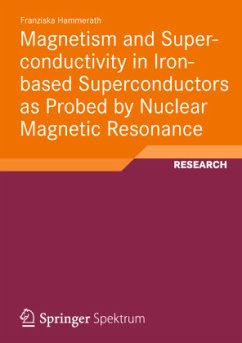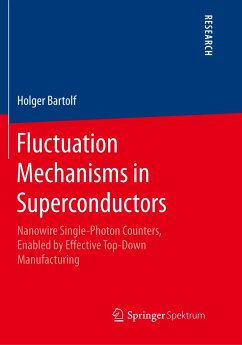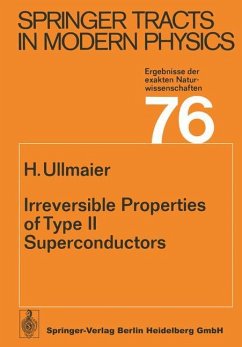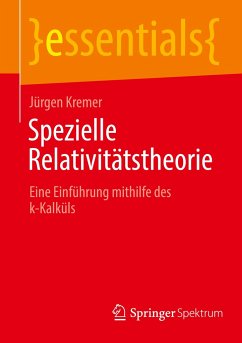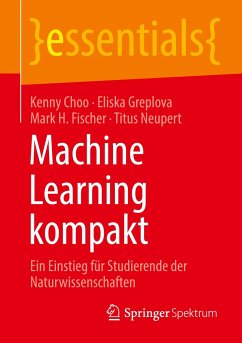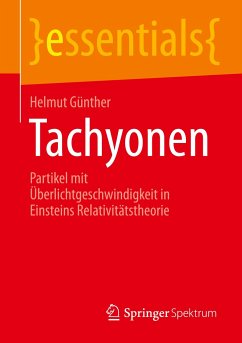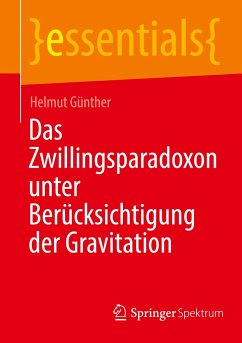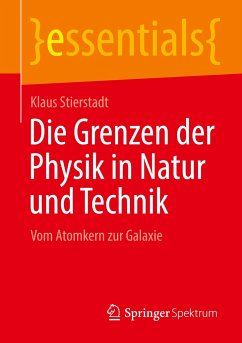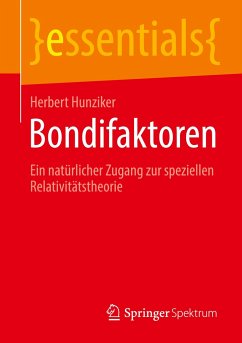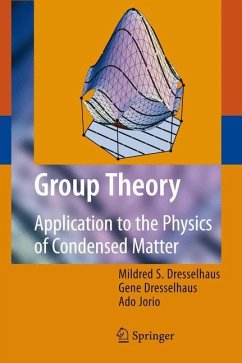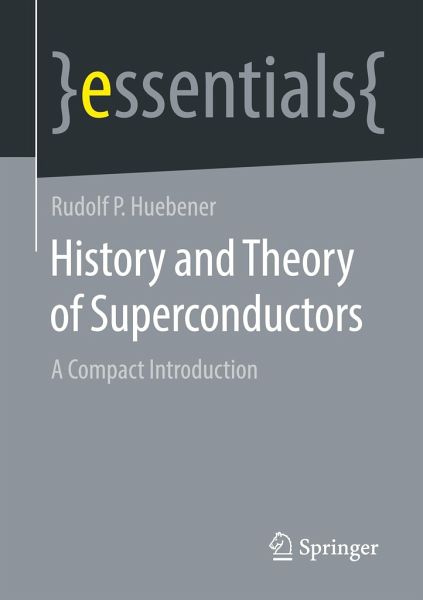
History and Theory of Superconductors
A Compact Introduction

PAYBACK Punkte
9 °P sammeln!
Rudolf P. Huebener presents the field of superconductivity research in a clear and compact way. He vividly describes how this area has developed in many directions since the discovery of superconductivity more than 100 years ago. This concerns materials, experiments on the physical principles, theoretical understanding and technical applications. Among other things, the essential deals with the Meissner-Ochsenfeld effect, magnetic flux quantization, the Josephson effect, the BCS theory and high-temperature superconductivity.This Springer essential is a translation of the original German 1st ed...
Rudolf P. Huebener presents the field of superconductivity research in a clear and compact way. He vividly describes how this area has developed in many directions since the discovery of superconductivity more than 100 years ago. This concerns materials, experiments on the physical principles, theoretical understanding and technical applications. Among other things, the essential deals with the Meissner-Ochsenfeld effect, magnetic flux quantization, the Josephson effect, the BCS theory and high-temperature superconductivity.
This Springer essential is a translation of the original German 1st edition essentials, Geschichte und Theorie der Supraleiter by Rudolf P. Huebener, published by Springer Fachmedien Wiesbaden GmbH, part of Springer Nature in 2017. The translation was done with the help of artificial intelligence (machine translation by the service DeepL.com). A subsequent human revision was done primarily in terms of content, sothat the book will read stylistically differently from a conventional translation. Springer Nature works continuously to further the development of tools for the production of books and on the related technologies to support the authors.
This Springer essential is a translation of the original German 1st edition essentials, Geschichte und Theorie der Supraleiter by Rudolf P. Huebener, published by Springer Fachmedien Wiesbaden GmbH, part of Springer Nature in 2017. The translation was done with the help of artificial intelligence (machine translation by the service DeepL.com). A subsequent human revision was done primarily in terms of content, sothat the book will read stylistically differently from a conventional translation. Springer Nature works continuously to further the development of tools for the production of books and on the related technologies to support the authors.



